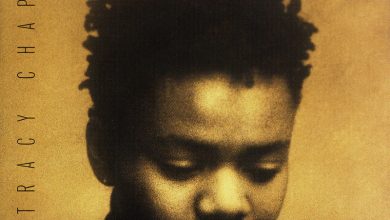Shiv or be Shivved: Siobhan Roy’s Guide to the Corporate Man Club

Image Description: A screenshot of an episode of “Succession” featuring Siobhan Roy (Sarah Snook) crossing her arms with out of focus people in the background.
Image Credits: HBO
With four incredible seasons of tears, trifles, and traumas coming to an end, there is much to unpack, but what I’ve spent much of the seasons thinking about is the brutal and deeply nuanced character of Siobhan Roy. A lot of the series finale felt, as director Mike Mylod says, like “good tragedy, it feels inevitable” and so did Shiv’s role in this series’ fallout. Be warned, spoilers are imminent. There are many potential interpretations of the reason behind “Shiv’s big shiv” and several are rooted in antiquated ideology that reduces Siobhan’s nuance to trite female tropes. You are careful and thoughtful audiences, I know you would never misinterpret this way…but just in case you did.
Let’s rewind to remember some of Siobhan’s power plays as she and her brothers have so ruthlessly struggled over their father’s crown. Shiv has been through a lot. Despite her aura of undeniable authority, she is consistently sidelined. The series began with Shiv out of the depths of her family’s empire, and solidly in her own career as a powerful political consultant. Instead of fighting, Shiv chose not to play the game. Well, as long as she could. In season two, Shiv is baited by her father as he dances around the idea that she will be the next CEO, luring her into the family regime and beginning her lust for the power she had previously resisted. Though, of course (there are four seasons it can’t be that easy!) Logan changes his mind in the end, resuming the battles again. In season three, we think things might be different for Shiv, but even her husband would sooner betray her than lose a chance at a powerful partnership with her father. Finally, in season four, after being pushed out by her brothers, Shiv looks outside the family to Lukas Mattson, the powerful tech tycoon that can buy her family’s company and finally put her at the bow of the ship. But once again, Shiv is cast aside. This time because Mattson wanted to sleep with her, and thus, naturally couldn’t work with her anymore. Shiv is powerful, intelligent, assertive, and nonetheless consistently sidelined by the men who run the world around her. Even in Shiv’s career as a political consultant, she was the brains behind the power but never the candidate herself.
“Succession” is a show that satirizes and ridicules the ultra-wealthy elite of corporate America, and that brilliantly depicts an archetypal form of male power, one that not even empire princesses can escape. In showing the inner workings of the “Man Club,” it shows the victims of its power, and how those victims are both those inside, or, like the women, those adjacent. Women in this world must be even more calculated and cautious to wield only a fraction of the power as the men around them, and almost always that power is channeled for the benefit of their male colleagues and superiors. In season two, when asking her father if her sex is the reason he refuses to make her CEO, Logan Roy responds to Shiv “Of course it’s a minus….. I didn’t make the fcking world.’’ Right, you didn’t make the world, you just run it.
So in the final episode of this brilliant and ever-thought-out series, when Shiv is left with the power of the deciding vote over her brothers, her husband, and Lukas Mattson, there is a small sense of schadenfreude for those Shiv fans (like us) watching. But while Shiv may have the power to decide, neither outcome favors her. The vote is between her two brothers keeping the company and her brother Kendall running it, and the acquisition of the company by Scandinavian Misogynist Lukas Mattson to be run by her estranged husband, Tom. In the final moments of the decision, Shiv votes against her brother, essentially voting for her backstabbing baby-daddy-husband to be CEO. Right, you’re beginning to see where some interpretations could go awry.
It could be seen as her solidifying both a nuclear family and an empire for her child’s future. Maybe Shiv decides it’s better to pull the strings behind her husband than be shut out by her brother, and at least this way her family has a chance. Except here’s why that’s wrong, at least in my view. Let’s not think for a second that this decision was made by some arc towards Shiv’s newfound maternal instinct, that this character’s priorities have somehow dramatically boomeranged. All season, Shiv has berated Tom, and while she does begin to try to reconcile things with him, there is never a moment that we begin to think she couldn’t raise this child on her own. She has no need for Tom and no desire to change her lifestyle to suit the child she will raise. She will do it her way. To think that Shiv’s character would make this decision on behalf of her child or her marriage is to affirm the idea that an ideal character arc would be that where a woman finds her maternal instinct in the end. To interpret Shiv’s decision in this way is to rely on the trope that women must, in the end, choose family over their independence and non-domestic goals. “Don’t worry, the female brute softens! Returns to ‘good values’!” Why must marriage and childbearing be the ideal of good values, especially for a character like Shiv who has shown little affinity for either? And why do we as audience members feel the need to reach for these values in order to explain Siobhan’s psychology? As far as we think we’ve come, promoting women’s autonomy, independence, and liberation from the idea of domestic life as the only option – we find a woman choosing her family and domestic values as the logical choice. Could it not be just as logical to not prioritize marriage or a family? We may say that it is, or want to say that it is, but I fear we (myself included) have not yet fully shaken our societal conditioning. But when Tom extends his hand it becomes clear, if it wasn’t already, that Shiv did not make this decision for him. Sitting next to her estranged husband, she puts her hand on top without quite taking his. She is not the trophy wife, and will never be, she assures us.
While this is Shiv’s approach, each female character on “Succession” plays the game differently. Each woman must make their own choices in operating in this male-dominated sphere, choosing to submit to it and benefit however they can (Willa and Marcia) to play by its rules (Karolina) and to put up with its idiocracy (Gerri). Aside from Shiv, Gerri may be the only woman taken seriously by the men in this show and even she gained most of her airtime as the punchline for Roman’s depraved sexual exploits. When interviewing with NPR’s podcast “Consider This,” actress J. Cameron Smith, who plays Gerri, revealed that the role of Gerri was originally written for a man. Smith thought that embracing the bro-y language and outsider status would be a “funny character quality… if she was sort of one of the guys but you could tell that she thought they were all idiots.” The key to Gerri’s survival is that she camouflages as one of the men, or tries to, while the crux of Shiv’s rejection is thinking she doesn’t need to. In some ways, Shiv likes to ignore the rules of the game. She starts to think the rules don’t matter and that’s how she gets burnt. These women, however they choose to survive and as ruthless and unsettling as their choices may be, are nonetheless written with respect and hardly from the vantage of the male gaze.
Jesse Armstrong, the show’s creator and head writer, filled his writer’s room with wise witty women. The women behind the words (Lucy Prebble, Georgia Pritchett, Susan Stanton) don’t demean the female characters, but rather satirize the world they operate within. Prebble says that the gender composition of the writer’s room contributes to the way the team operates. The show hardly avoids the topic of sex, but it does avoid the media-beloved male gaze that is usually used to depict it. “Jesse and us, we’re not interested in having people take their clothes off, particularly women,” Prebble says. These writers carefully maintained the tone of the show and the show’s implications. Let’s not undo all their craftsmanship with some pseudo-misogynistic misunderstandings…
Another interpretation for the reason behind Shiv’s final vote is that she is a character who is driven to self-sabotage. So this interpretation isn’t entirely wrong, but let’s be careful. It’s very easy (for less thoughtful eyes than yours) to see Shiv’s final change of heart as an impulsive act of female hysteria. She couldn’t accept the logically good option in front of her (to keep it in the family and exert some influence over her brother), so in a moment of female rage, she destroys it all. In the scene with Shiv and her brothers as she storms out of the conference room, and as one of her brothers remarks about her pregnancy, I fear audiences would too quickly think that Shiv’s decision was at all a pregnant lapse of judgment. While Shiv’s decision may have been emotional, maybe even rash, I warn audiences against slipping into the misogynist idea that it was hormonal. Qualifying Shiv’s decision as one driven by hormonal hysteria is to undermine the weight of her decision and the potency of her desperation. We may be watching the world of Logan Roy, but we need not (and we shall not) begin to think like him. “Succession”’s brilliance comes from its sharp repudiation not reaffirmation of these environments and what they can become. The writers have carefully crafted this world for us to recognize (and yes laugh at) the preposterous and deeply upsetting flaws of these characters and their upbringing.
Shiv’s decision was an act of sabotage but not one that was driven by a pregnant irrationality. Rather her brutal corporate fratricide was a consequence of an upbringing that cultivated the need to constantly land on top. After years of animosity, and the repeated idea instilled that there can be only one winner, Shiv was left unable to vote for her brother and a future they “shared.” Her brother’s unending petulance doesn’t help. The minute Shiv hesitates to vote for Kendall, he jumps into a tantrum, only reaffirming Shiv’s resistance to his temperamental nature and unwavering entitlement. After being coaxed into caring about this company, and now deeply invested in both its success and her role in its future, she’s utterly disgusted by the idea of handing it to her unwieldy and emotionally abusive brother. She knows just how deep his delusion runs and just how much power and national influence she would be granting him. Aside from not being able to stomach the thought, she knows he doesn’t deserve it, and has even actively worked against the company’s well-being time and time again. In a final plea to his sister, Kendall screams “I’m the eldest boy!”. The statement stings, not because it says anything about Shiv, but because it’s hard to see this full-grown man be just that — a hopelessly entitled out-of-touch boy, a boy who relies on the framework of misogyny and greed to give him something to live for. But Shiv doesn’t owe her brother anything. To vote for Kendall is to reaffirm this system, not only this person, that perpetually wronged her; it’s to say there’s validity to it. While voting for her near equally conniving husband isn’t that much better, at the very least it resists giving credence to Kendall and all he represents. Mylod explains that the series finale exposes how men like Kendall and Roman, despite being handed everything they still can’t be as their father says “serious people.” Roman, in the final episode when realizing all hope is gone, he says “we’re bullshit.” Shiv’s realized what they are and Roman in the series’ final moments has too.
These are the men closest to Shiv. This is the world she inhabits. This isn’t an ending about Shiv choosing or not choosing family (her one with Tom or with her brothers), it’s about the legacy of the trauma she takes from her family. As Mylod says, it’s about the consequences of their nature and their upbringing. But unlike her brothers, for Shiv it’s more than her nature of greed and her upbringing that taught them “we can’t all win.” It’s not just living with the idea that there is only one winner, it’s also struggling with the life-long idea that she will never be that winner.




